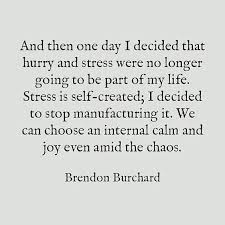
Photo from Unsplash
Embarking on the journey of meditation is akin to entering a profound realm of self-discovery and tranquility. This ancient practice, deeply woven into the fabric of various cultures and spiritual traditions, offers a transformative pathway to inner peace and mindfulness. In this exploration of meditation, you can delve into its fundamental principles and techniques. You may also learn about the many benefits it brings. If you are eager to embark on this contemplative journey, there is much to be gained.
Understanding the Essence of Meditation
Meditation, at its core, is a mental exercise designed to heighten awareness and cultivate a tranquil state of mind. In a world filled with incessant noise and distractions, meditation serves as a sanctuary. This is a space that is meant to silence the ceaseless chatter of the mind. Through various techniques such as focused breathing, guided visualisation, or mindful observation, individuals aim to create a profound sense of calm and presence in the current moment. There’s a reason why meditation has been a part of the human experience since as far back as 5000 BCE.
Getting Started on Your Meditation Journey
Begin by finding a quiet and comfortable space where you can sit or lie down without distractions. Creating an environment that allows you to immerse yourself in the practice is foundational. Once settled, turn your attention inward, focusing on your breath—an elemental meditation technique. Inhale deeply, feeling the air fill your lungs, and then exhale slowly, consciously releasing tension. Alternatively, engage in mindful observation by letting thoughts come and go without attachment, cultivating a non-judgmental awareness of the present moment. Don’t be surprised if a surge of energy during meditation happens — and don’t judge it if it does.
Various Types of Meditation
Meditation is a diverse tapestry, offering various techniques catering to different preferences and goals. Mindfulness meditation encourages being fully present, urging individuals to observe thoughts and sensations without attachment. Transcendental meditation involves repeating a mantra silently, guiding practitioners toward a state of relaxed awareness. Loving-kindness meditation centers around cultivating feelings of love and compassion, often achieved through the repetition of positive phrases. Body scan meditation encourages a mental exploration of the body, identifying and releasing tension to promote both physical and mental relaxation.
Benefits of Meditation
The benefits of meditation are extensive and well-documented, making it a compelling practice for those seeking holistic well-being. Stress reduction stands as one of its primary advantages, with regular practice promoting relaxation and heightened mindfulness. Improved concentration becomes a natural outcome, as meditation serves as a training ground for the mind, enhancing cognitive function and focus. Emotional well-being experiences a positive shift, marked by reduced anxiety, a more optimistic outlook, and increased emotional resilience. The calming effect of meditation often extends to sleep, contributing to improved sleep quality and overall restorative rest.
Challenges on the Meditation Path
While the benefits of meditation are profound, the journey is not without its challenges. Patience becomes a valuable companion, recognizing that meditation is a skill that matures over time. Developing a consistent practice is equally crucial; establishing a routine, even if just for a few minutes each day, allows individuals to experience benefits. Encouraging experimentation with different techniques acknowledges the uniqueness of each individual, encouraging them to discover approaches that resonate with their personal preferences. Incorporating meditation into daily life is a transformative process, one that extends beyond formal sessions. Integrating mindfulness into routine activities, such as mindful eating or walking, becomes a practical and enriching way to extend the benefits beyond the confines of just one daily meditation session.
Final Thoughts on a Transformational Process
Practicing meditation will unlock a special door to the realm of self-discovery and serenity. As one navigates the principles, techniques, and benefits, it becomes evident that the true beauty of meditation lies not solely in reaching a destination but in embracing the ongoing journey toward self-awareness and inner peace. Whether you are a novice or a seasoned practitioner, the path of meditation invites you to explore the depths of your own consciousness and find solace in the stillness of the present moment.
This article was written by writer Miranda Spears.











